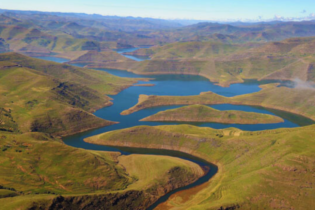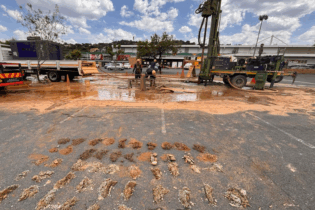Zille further pleaded with citizens to continue to save water and adhere to restrictions imposed by affected municipalities.
“While it remains a cause for concern, we believe the current drought is an opportunity to innovate and act responsibly in the way we make use of our water resources,” she said. Stressing the severity of the current water situation, local government MEC Anton Bredell said the Provincial Disaster Management team’s most immediate interventions will include the drilling of boreholes at hospitals, starting in the metro, followed by schools in high-risk water scarce areas. He added that another step will include expediting the environmental impact assessments (EIAs) for testing a mobile desalination plant. This will be done by using existing water inlet flows used for the reactors at the Koeberg site. Other steps will include drilling into the Table mountain aquifer, appointing groundwater specialists in each district and assessing the state of water restrictions in the respective municipalities.
The Western Cape has officially been declared a disaster area. Following the most crippling drought to hit the province in over a century, Premier Helen Zille said the decision will be formally gazetted by this week.
Dam levels in the Cape are at record low levels of 20.7%, having fallen 0.7% from the previous week. With the last 10% of a dam’s water mostly non-useable, average dam levels are effectively at 10.7% across the province.
“The disaster declaration will accelerate the Western Cape Disaster Management Centre’s project, ‘Avoiding Day Zero’, the province’s strategy to ensure that taps do not run dry,” Zille said.
As it stands, the province will be classified a disaster area for three months and will be extended if the need arises.
The Western Cape government said that during such a classification, the Disaster Management Act empowers the provincial government to protect key frontline service delivery points by reprioritising funding.
Zille said the ‘Avoiding Day Zero’ project, which is being led by the Provincial Disaster Management Centre (PDMC), has three main focus areas. They include demand management, winter conservation and groundwater management.
Zille also said government will prioritise interventions based on the provincial Drought Risk Register.
“Provincial Disaster Management will focus on the most critical aspects of that list,” she said. “Funding will be reprioritised provincially and, should further assistance be needed, the province will approach National Treasury and the national department of water and sanitation.”







